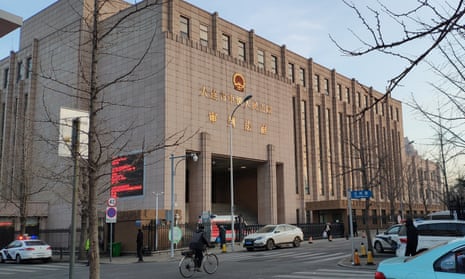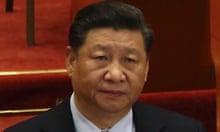Canada has issued a travel warning to its citizens going to China, in the wake of a Canadian man being sentenced to death over drugs charges.
On Monday a Chinese court upped Robert Lloyd Schellenberg’s sentence from 15 years in prison to execution after he appealed against the court’s December verdict.
A retrial was ordered after prosecutors claimed new evidence showed Schellenberg played an important role in drug trafficking operations.
“The evidence is compelling and ample, and the criminal charges are well founded,” the court said.
Late on Monday, Canada’s foreign ministry updated its travel advisory for China to warn citizens about “the risk of arbitrary enforcement of local laws.”
It added: “We continue to advise all Canadians travelling to China to exercise a high degree of caution.”
Schellenberg’s lawyer, Zhang Dongshuo, said on Tuesday an appeal would be launched, arguing the court should not have increased the sentence given no new evidence had been introduced during his retrial. “Chinese law stipulates that during an appeal, only if new evidence is discovered and retried can there be an increase in the severity of a sentence,” Zhang said.
The sentence is expected to escalate diplomatic tensions between China and Canada. The Canadian prime minister, Justin Trudeau, said Ottawa would continue to “engage strongly” with Beijing.
“It is of extreme concern to us as a government, as it should be to all our international friends and allies, that China has chosen to begin to arbitrarily apply the death penalty … as in this case,” Trudeau said.
Schellenberg’s aunt, Lauri Nelson-Jones, said the family’s worst fears had been confirmed.
“Our thoughts are with Robert at this time. It is rather unimaginable what he must be feeling and thinking,” she said in a statement. “It is a horrific, unfortunate, heartbreaking situation.”
China-Canada ties turned icy in early December when Canadian authorities arrested Meng Wanzhou, a senior Huawei executive and Chinese citizen, for extradition to the US. Critics say Beijing is using Schellenberg’s case to exert pressure on Ottawa.
Within weeks of Meng’s arrest, Chinese authorities detained a former diplomat, Michael Kovrig, and a businessman, Michael Spavor. Several other Canadians have been detained and deported.
On Tuesday, Hua Chunying, a spokesperson for the foreign ministry said China expressed “strong dissatisfaction” and urged Canada to respect China’s judicial sovereignty and stop “issuing irresponsible remarks”.
In an editorial, China’s state-run Global Times newspaper denied there was any link between Schellenberg’s sentence and Meng Wanzhou’s case.
“Some Canadian and Western media immediately linked the case with that of Meng’s, arguing Beijing is putting pressure on Ottawa through the case. This unreasonable speculation is a rude contempt toward Chinese law,” it said.
“Public opinion in Canada has claimed recently that China is ‘politicising’ Schellenberg’s case, but what Canada is doing is actually politicising law.”
Schellenberg has been detained since 2014 in a case that initially attracted little public attention. The court statement said Schellenberg was part of a failed attempt to smuggle 225kg of methamphetamine to Australia by hiding the drugs in tyres.
In December, authorities ordered a retrial and invited in foreign media, a rarity for Chinese courts, which normally go to great lengths to limit access.
Sophie Richardson, the China director for Human Rights Watch, said: “Beijing will have to answer to the world why this particular case against a citizen of a particular country had to be retried at this particular moment.”
Foreigners have been executed for drug-related crimes in China, but Schellenberg’s case is notable for its timing and the publicity Chinese authorities gave the retrial.
William Nee, a China researcher at Amnesty International, said: “This is all the more shocking given the rushed nature of the retrial, and the deliberate way in which the Chinese authorities drew attention to the case. When they actually invite the international press corps, it’s very unusual and a good sign the Chinese authorities sought to highlight the case for a political messaging purpose.”
Legal experts have raised questions about the case. Schellenberg was detained for more than a year before his first trial, in March 2016, and he was not sentenced for another 32 months. Yet the retrial was ordered within 16 days of the court’s appeal decision.
“Given that the prosecution apparently plans to make new allegations that would justify the imposition of a death sentence, such a brief time is utterly inadequate for the preparation of a meaningful defence,” wrote Donald Clarke, a professor of law at the George Washington University Law School and expert in Chinese law.
“The case appears to reinforce the message, previously suggested by the detentions of Canadians Michael Kovrig and Michael Spavor, that China views the holding of human hostages as an acceptable way to conduct diplomacy,” Clarke wrote.









